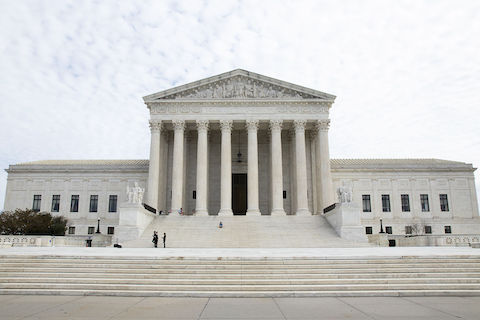ONLINE Dan Fulleton Farm Equipment Retirement Auction
THIS WILL BE AN ONLINE AUCTION Visit bakerauction.com for full sale list and information Auction Soft Close: Mon., March 3rd, 2025 @ 12:00pm MT Location: 3550 Fulleton Rd. Vale, OR […]
Published 3:46 pm Thursday, January 23, 2025

The U.S. Supreme Court on Jan. 23 lifted a nationwide injunction imposed by a Texas judge last month barring the Treasury Department from enforcing the Corporate Transparency Act.
The unsigned order is the latest twist in the legal battle over a law that will require millions of small business owners and their top employees to submit personal information to federal financial crime investigators.
The court overturned U.S. District Judge Amos Mazzant in East Texas, who ruled the law was likely unconstitutional. The Supreme Court did not address the law’s constitutionality, but lifted the injunction pending the government’s appeal to the 5th Circuit Court.
Justice Ketanji Brown Jackson dissented from the ruling. She stated the 5th Circuit has expedited the government’s appeal and doubted claims delaying the reporting deadline will harm the government.
The Treasury Department set a reporting deadline that was nearly four years after Congress passed the law, she noted.
“The government has provided no indication that injury of a more serious or significant nature would result if the act’s implementation is further delayed while the litigation proceeds in the lower courts,” Jackson stated.
The Justice Department argues the Corporate Transparency Act is vital to uncovering money-laundering schemes that help drug traffickers, tax dodgers, human smugglers and other high-level criminals.
Because of legal uncertainty, the Financial Crimes Enforcement Network pushed back the reporting deadline to Jan. 13 from Dec. 31. Mazzant’s injunction wiped out the Jan. 13 deadline.
It was not immediately clear Jan. 23 whether the Treasury Department will set a new deadline. An order by the 5th Circuit barring enforcement was not lifted.
A diverse group of organizations, including the American Farm Bureau, National Cattlemen’s Beef Association and R-CALF, oppose the law.
Opponents of the law say it tramples on constitutional liberties and have filed lawsuits in federal courtrooms across the country.
Two federal judges, in Oregon and Virginia, ruled the law was constitutional, while three federal judges have ruled it unconstitutional.
Mazzant ruled the law exceeded Congress’ power to regulate commerce, foreign affairs and tax collections. He was the first judge to issue a nationwide injunction against the law.
In a concurring statement, Justice Neil Gorsuch said he agreed with lifting Mazzant’s order, but said the court should take up the case to definitively answer whether a district court judge can issue a nationwide injunction.
The Center for Individual Rights, the law firm that filed the lawsuit leading to the Supreme Court’s decision, said in a statement it was disappointed Mazzant’s injunction was stayed pending the government’s appeal.
“We remain confident that the law’s invasive reporting requirements and draconian penalties will be ruled unconstitutional,” the center’s president, Todd Gaziano, said.